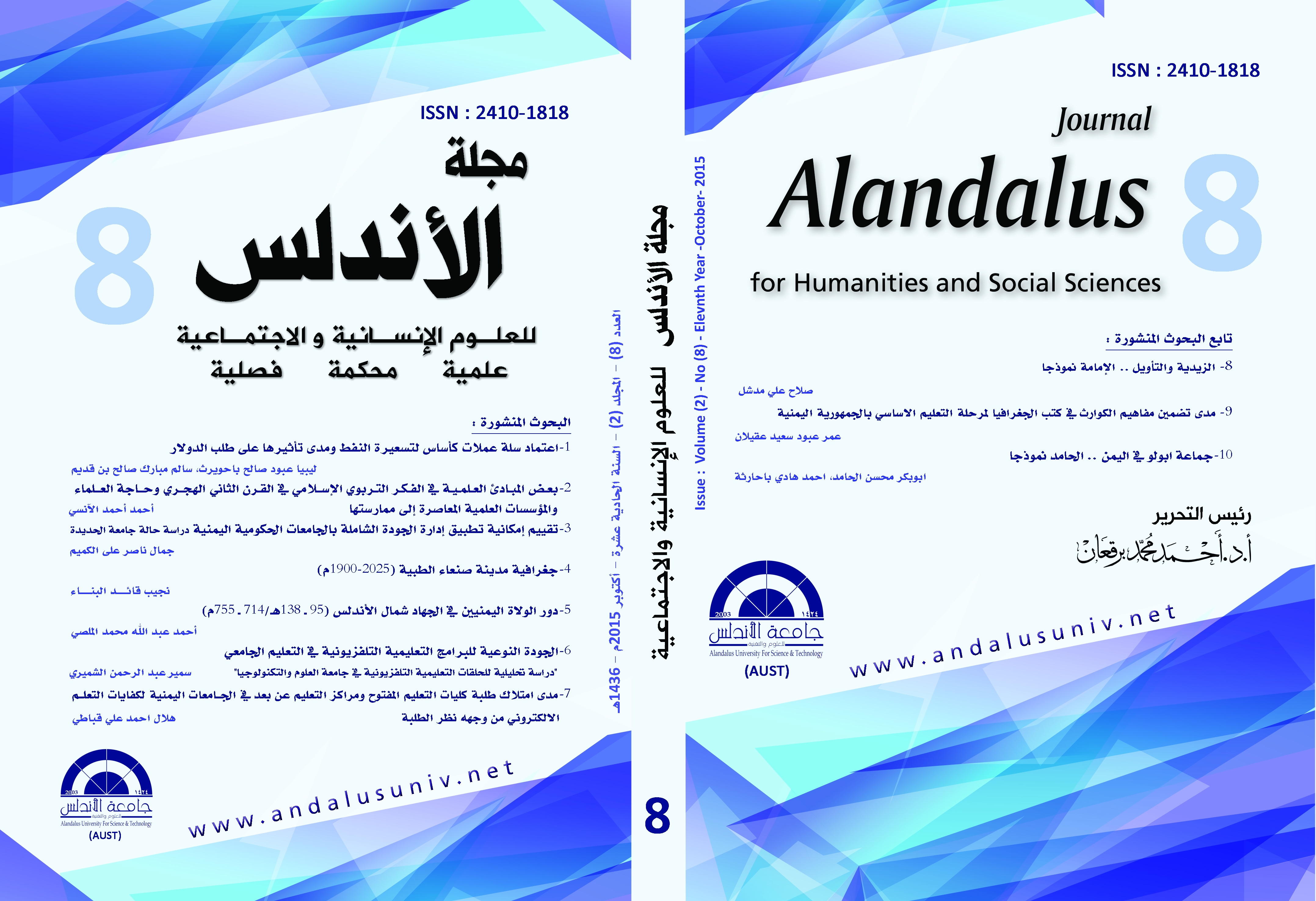Quality of Television Education Programs in University Education: An Analytical Study of Television Education Episode at The University of Science and Technology 10.12816/0030506د. سمير عبد الرحمن الشميري
Main Article Content
Abstract
The significance of the research arises from the type of subject that it is discussing. That is as education via television is from the new means which combines and comprises various educational means. And due to the importance of what educational television does provide and can provide in the field of educational and in respect to educating and culturing the society, as a societal role. Universities are concerned with this subject and especially in the case where the Yemeni universities today provide this type of education.
The study problem is summarized as follows: What is the role of educational television, in its description as being an educational service in university education? What is the quality level of the educational television episodes in respect to university education at the University of Sciences and Technology?
The research, in general, seeks to disclose the educational television role, in its description as being an educational service within university education, and to ascertain the quality level of those programs. It then seeks to predict the future of educational television within university education.
The study explored the modern theoretical approach concerning educational television, in relation to its concept, significance, distinguishing elements and functions. It also addressed the television programs, their philosophy, the kinds of educational television and the systems of television broadcasting for educational television.
The variables of the study were then determined through a form designed in relation to evaluating the educational television episodes. These numbered eight variables: Preparation, presentation, recording, sound, light, montage and episode time.
The study adopted the descriptive analytical approach and designated the study community as the educational episodes produced at the University of Sciences and Technology. It selected a random sample, consisting of 41 episodes from an original total of 400 recorded episodes. It relied upon a content analysis form adopted by the university to evaluate the recorded episodes
The study relied upon a set of statistical approaches; such as iterative tables, averages, standard deviation, T-test, and Pearson coefficient (R).
The study reached several conclusions. It is possible to summarize them by saying that the educational production in the university is an average production, which is close to being good. And that there is a steady positive correlation between the improving the quality of the production stages and the quality of the produced educational programs. This reflects in a positive manner upon the future of educational television at universities, and consequently upon the functional role of universities, in general, and for open (university) education, specifically.
The study made a host of recommendations which can be summarized as follows: Improving the relative quality of program production and raising it from its current level, which is average and close to being good. Serious forward-looking in relation to setting up educational television by universities and for the necessary steps to be taken to accomplish that, in order to fulfil the functional role of universities, in general, and open education in universities, specifically.
The research concluded by predicting the future of educational television within university education, by reitterating the importance of the main bases for the launching of educational television and the educational channel project. At the forefront of this is: Improving the production of educational programs, so that those programs can realize distinction and the capablility to compete. The importance of holding a workshop, discussion sittings, periodical meetings and undertaking periodical evaluations, to avoid anticipated errors and to lessen the risks. The necessity of benefiting from previous experiences in the field of educational television. Hosting experts and specialists in the field of educational television and to set a timetable to implement the educational television project.
This abstract translated by Dar AlMandumah Inc 2018.

